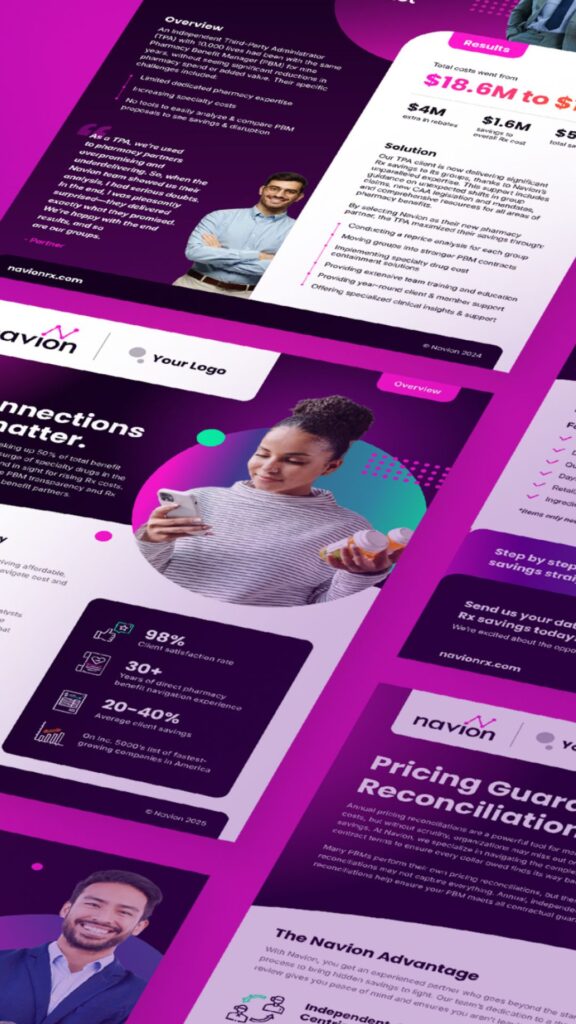Direct-to-consumer pharmacy programs aren’t new—but they’re about to get a lot bigger.
Several pharmaceutical manufacturers offer select medications directly to patients at flat or discounted cash prices—bypassing insurance and traditional pharmacy benefit structures. These direct-to-consumer (DTC) programs allow individuals to purchase brand-name therapies through manufacturer-run websites, often with transparent pricing, home delivery, and simplified access.
Now, the federal government is preparing to scale this model. As part of its ongoing negotiations with drug manufacturers—guided by five “pillars of fairness”—the current administration has made direct patient access to lower prices a central goal. In early 2026, it plans to launch TrumpRx.gov, a new federal purchasing platform where Americans will be able to buy medications directly from participating manufacturers.
Pfizer has already indicated it will make most of its medications available on TrumpRx.gov at Most Favored Nation (MFN) pricing or at rates below current U.S. levels. This approach bypasses middlemen and aims to provide increased price transparency for consumers.
Current Direct-to-Consumer Opportunities from Pharma
While TrumpRx.gov represents a national expansion of this model, several pharmaceutical companies already offer DTC purchasing for select products. These current programs typically serve individuals who don’t have insurance and are seeking self-pay pricing options.
| Entity | Drugs | DTC Price | Website |
| Eli Lilly (LillyDirect) | Zepbound (tirzepatide) and other Lilly meds | Zepbound -$499/month (self-pay only) Basalar -$35/month (insurance or self-pay) Emgality -$35/month (insurance only) Humalog -$35/month (insurance or self-pay) Humulin – $35/month (insurance or self-pay) Lyymjev – $35/month (insurance or self-pay) Rezvoglar – $35/month (insurance or self-pay) |
https://www.lillydirect.com |
| Novo Nordisk (NovoCare Pharmacy) | Wegovy (semaglutide), Ozempic (semaglutide) | Wegovy – $499/month (self-pay only) Ozempic – $499/month (self-pay only) |
https://www.novocare.com |
| AstraZeneca (AstraZeneca Direct) | Farxiga, Airsupra, FluMist | Farxiga – $182/30 tablets (self-pay; insurance price varies) Airsupra – $249/inhaler (self-pay; insurance price varies) FluMist – (no self-pay; insurance price varies) |
https://www.astrazenecadirect.com |
| Sanofi (Sanofi Insulin Program) | Sanofi insulins (Admelog, Apidra, Lantus, Merilog, etc.) | Intends to offer insulins at $35/month with insurance or self-pay. **Launch date not specified** | TBD |
| Novartis (Novartis Direct) | Cosentyx (secukinumab) | Intends to offer Cosentyx at 55% discount to current list price on select units for self-pay. **Expected to launch November 1, 2025** | TBD |
| Boehringer Ingelheim (Access Platform) | Spiriva Respimat (tiotropium) | Spiriva Respimat – (self-pay and insurance prices vary) | https://www.boehringer-ingelheim.com/us/access/ |
| AbbVie (Synthroid Delivers) | Synthroid (levothyroxine) | Synthroid – $29.50/30 days; $54/60 days; $75/90 days (self-pay) | https://www.synthroid.com/synthroid-delivers-program |
| VIVUS (Qsymia Engage) | Qsymia (phentermine/topiramate) | Qsymia – $98 flat pricing; includes 6-week starter packs and all 30-day prescriptions (self-pay) | https://www.qsymiaengage.com |
| Bristol-Myers Squibb (BMS Patient Connect) | Eliquis (apixaban), Sotyktu (deucravacitinib) | Intends to offer Eliquis at more than 40% discount to current list price for self-pay. Intends to offer Sotyktu at more than 80% discount to current list price for self-pay **Expected to launch January 2026** |
https://www.bmspatientconnect.com |
| PhRMA (AmericasMedicines.com) | TBD | **Expected to launch January 1, 2026** | https://americasmedicines.com/ |
| Amgen | Repatha | Repatha – $239/month ≈60% below list price for self-pay. Launched October 6, 2025. | https://www.amgensupportplus.com/patient/repatha |
What It Means for Brokers and Employers
Although these programs currently target self-pay consumers, they mark an accelerating shift toward price transparency and disintermediation—themes that could eventually influence employer-sponsored coverage and pharmacy benefit structures.
When TrumpRx.gov launches and manufacturers expand their own DTC offerings, brokers and benefit advisors should watch for:
- Changing member purchasing behavior, especially for high-cost therapies.
- Pressure on PBMs and carriers to increase pricing transparency.
- Emerging carve-out or supplemental strategies that align with direct pricing models.
Navion will continue tracking both the federal platform rollout and manufacturer-led DTC programs, providing updates to partners as they become available.









